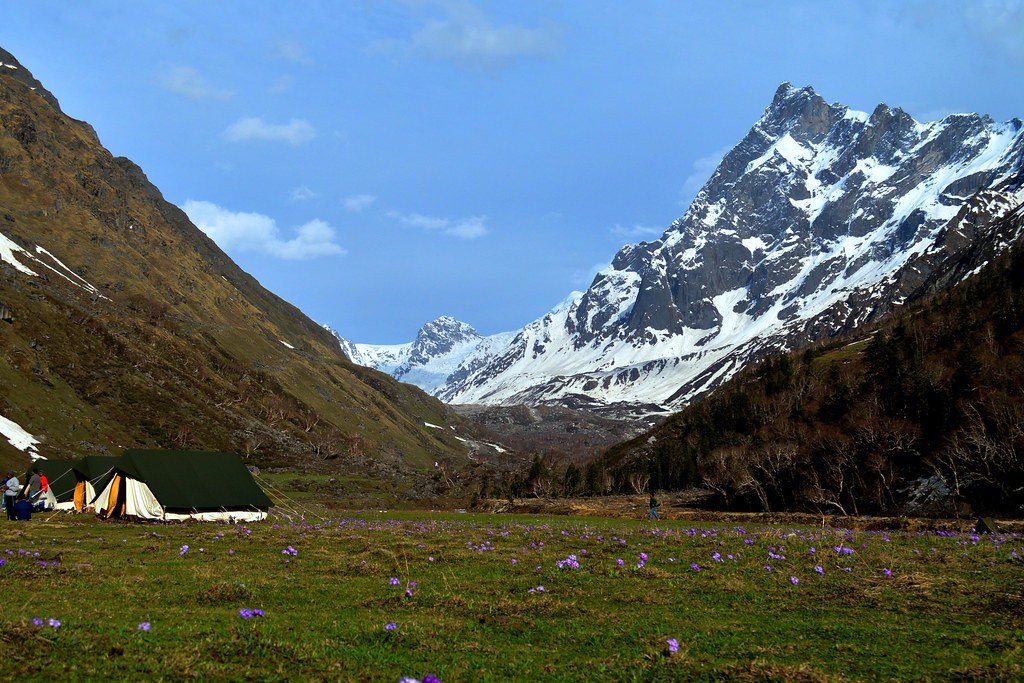Mount Abu: Hill Station In The Dessert | Top 12 Places To Visit In Mount Abu
Mount Abu, the sole hill station in Rajasthan nestled in the Aravali mountain range near the Gujarat border, is renowned for its natural beauty, religious sites, and historical significance. Its key attractions include Nakki Lake, believed to be India’s first man-made lake where Mahatma Gandhi’s ashes were immersed, the exquisite Dilwara Jain Temples showcasing intricate marble carvings, Guru Shikhar, the highest peak offering panoramic views and housing a temple dedicated to Guru Dattatreya, Achalgarh Fort with its medieval architecture and unique temples, and the spiritual retreat of Brahma Kumaris Headquarters. Mount Abu is an ideal destination for a tranquil and rejuvenating holiday amidst Rajasthan’s cultural and spiritual essence.

Best Places To Visit In Mount Abu:
Mount Abu offers numerous trekking trails that wind through its rugged terrain, providing opportunities to explore its natural beauty up close. The popular trek to Guru Shikhar, the highest peak in the Aravalli Range, rewards trekkers with panoramic views of the surrounding landscape.
Here are some places to visit in Mount Abu:
1. Dilwara Jain Temples
The Dilwara Jain Temples near Mount Abu in Rajasthan, India, consist of five temples renowned for their exquisite marble carvings and architecture dating from the 11th to 16th centuries. Each temple is dedicated to a different Jain Tirthankara. Notable features include elaborate shrines, intricate sculptures, and detailed carvings. Visitors can explore the temples during specified hours, with free entry but no photography allowed inside.

Timings: Open from 12:00 to 5:00, with special hours for Jains for worship from 6:00 to 12:00.
Entry Fees: free.
2. Nakki Lake
Nakki Lake, nestled in the picturesque hill station of Mount Abu, Rajasthan, India, holds a unique charm as the country’s inaugural man-made lake, purportedly excavated by the divine nails of a Hindu deity. It carries profound significance for the Garacia tribe, who hold it sacred. This scenic marvel draws tourists with its array of activities such as boating, horseback riding, and captivating vistas of the encircling mountains and rock formations. Notably, the iconic Toad Rock stands out, resembling a poised amphibian ready to leap into the serene waters. Additionally, a scenic trail leads to Sunset Point, offering breathtaking views of the lake at dusk. Beyond its natural allure, Nakki Lake is steeped in history, serving as the site where Mahatma Gandhi’s ashes were immersed in 1948. A poignant memorial, Gandhi Ghat, stands adjacent to the lake.

Timings: Open from 9:30 AM to 6:00 PM, Nakki Lake extends its serene embrace, welcoming all except Jains, who may visit from 6:00 AM to 12:00 PM
Entry Fees: Free
3. Toad Rock
Toad Rock stands as a prominent tourist hotspot within Mount Abu, Rajasthan. This imposing rock formation mirrors the shape of a poised toad, seemingly on the brink of leaping into the nearby Nakki Lake. Offering an ideal vantage point, Toad Rock beckons visitors to relish in the scenic splendor of the lake and surrounding hills, while also providing opportunities for adventurous pursuits such as trekking and rock climbing. Accessing Toad Rock requires ascending approximately 250 steps from the lakeside, presenting a challenge to some. Optimal timing for a visit is during the monsoon season, when the landscape is cloaked in vibrant greenery and the climate is temperate. Dating back billions of years.

4. Guru Shikhar
Guru Shikhar, nestled within the Aravalli Range in Mount Abu, Rajasthan, stands as the loftiest summit in the vicinity. Renowned among both tourists and pilgrims, it presents a breathtaking panorama of the encompassing hills and valleys. Moreover, it hosts a revered temple dedicated to Guru Dattatreya, a manifestation of Lord Vishnu. Situated approximately 15 kilometers from Mount Abu town, Guru Shikhar is accessible via road or trekking. At an elevation of 1,722 meters (5,650 feet) above sea level, this pinnacle holds the distinction of being one of the planet’s most ancient formations, boasting an impressive age of six billion years. Notably, Guru Shikhar is also home to the Mount Abu Observatory, boasting a 1.2-meter infrared telescope alongside various astronomy experiments, adding to its allure as a destination for both celestial enthusiasts and nature admirers alike.

5. Achalgarh Fort
Achalgarh Fort is a 15th-century fort in Mount Abu, Rajasthan. It was originally built by the Paramara dynasty rulers and later renovated and renamed by Maharana Kumbha, one of the most powerful kings of Mewar. The fort has a huge gate called Hanumanpol, which leads to the lower fort, and another gate called Champapol, which leads to the inner fort. Inside the fort complex, there are several temples, including the Achaleshwar Mahadev Temple, dedicated to Lord Shiva, and some Jain temples, built in 1513. The fort also offers a panoramic view of the surrounding hills and valleys, and the Mandakini Lake, which has a legend associated with it. The fort is now in a dilapidated condition, but still attracts many tourists and pilgrims who want to explore its history and culture.

6. Brahma Kumaris Headquarters
Brahma Kumaris is a spiritual movement that originated in Hyderabad, Sindh, during the 1930. The headquarters of Brahma Kumaris is located in Mount Abu, Rajasthan, and consists of four main campuses: Pandav Bhawan, Shantivan, Gyan Sarovar, and Peace Park. Each campus has its own features and facilities, such as meditation rooms, libraries, observatories, temples, and halls. The headquarters of Brahma Kumaris offers various programs and courses on personal development, meditation, and spirituality, as well as hosting events and conferences for different wings and departments of the organization. The headquarters of Brahma Kumaris is a place where people can learn, practice, and experience the values and teachings of the Brahma Kumaris, and also enjoy the natural beauty and tranquility of Mount Abu.

7. Mount Abu Wildlife Sanctuary
The Mount Abu Wildlife Sanctuary, spanning 288 km. within the Aravalli range of Rajasthan, India, stands as a safeguarded haven for a diverse array of flora and fauna. Among its inhabitants are leopards, sloth bears, sambar deer, wild boar, chinkara, and a plethora of bird species. Alongside its vibrant wildlife, the sanctuary is celebrated for its enchanting vistas, age-old temples, and captivating rock formations.

8. Sunset Point & Honeymoon Point
Sunset Point and Honeymoon Point stand as two sought-after destinations in Mount Abu, Rajasthan, nestled in proximity to Nakki Lake, offering breathtaking vistas of the sun’s descent behind the Aravalli hills. At Sunset Point, witness the kaleidoscope of hues painting the sky as the sun bids adieu to the day. It also doubles as a charming marketplace, where local handicrafts and souvenirs adorn stalls, adding to the experience.

Timings: From 6:00 AM to 6:00 PM.
Entry Fees: at INR 50 per person.
Honeymoon Point, also known as Anadara Point, serves as a romantic haven for couples, featuring two rocks resembling a man and a woman. Nestled at an elevation of 4000 feet, it offers a tranquil setting to bask in the natural splendor of Mount Abu.

Timings: from 6:00 AM to 6:00 PM.
Entry Fees: free.
9. Vimal Vasahi
Vimal Vasahi, situated in Mount Abu, Rajasthan, is a distinguished Jain temple among the renowned Dilwara temples, celebrated for their opulent marble carvings and architectural grandeur. Constructed in the 11th century by Vimal Shah, a minister under Raja Bhimdeo’s reign, this temple venerates the first Tirthankara, Rishabhanatha. Adorned with an array of exquisite features, including a captivating dome, ornate pillars, and intricately sculpted ceilings embellished with mesmerizing patterns, Vimal Vasahi stands as a testament to unparalleled craftsmanship and devotion.

10. Adhar Devi Temple
The Adhar Devi Temple, nestled in Mount Abu, Rajasthan, stands as a revered Hindu shrine dedicated to Goddess Durga. Also known as Arbuda Devi Temple, it holds significance as the presumed abode of Arbuda, the serpent goddess revered for safeguarding the hill. Perched within a cave, accessible via a climb of 365 stairs carved into the mountainside, this temple offers a unique pilgrimage experience. Entranced devotees must crawl through a small opening to access the sanctum, where the divine presence is said to reside. As one of the 51 Shakti Peethas, revered sites where fragments of the goddess are believed to have fallen, the temple holds immense spiritual importance. It attracts throngs of pilgrims, especially during the Navratri festival, seeking blessings and divine grace.

11. Gaumukh Temple
Gaumukh Temple, situated in Mount Abu, Rajasthan, stands as a sacred Hindu shrine dedicated to Lord Shiva and Saint Vashishtha. Its name derives from the natural spring flowing from a marble cow statue, revered by devotees for its sanctity. Nestled within a wild valley, accessing the temple entails climbing 700 stairs carved into the mountainside. Characterized by rock-cut architecture, the temple’s sanctum lies beyond a small opening. Notably, it features Agni Kund, a tank where Saint Vashishtha is believed to have conducted a yagna, shaping the four major Rajput clans. the temple’s association with the legends of the Ramayana, including Lord Rama and Lakshmana seeking Saint Vashishtha’s blessings, adds to its allure. A revered pilgrimage site, especially during the Navratri festival, Gaumukh Temple attracts devotees who offer prayers and worship the goddess.

12. Bailey’s Walk
Bailey’s Walk, a picturesque trekking and hiking trail nestled within the forests of Mount Abu, Rajasthan, offers an immersive journey through nature’s splendor. Named in honor of Sir Bailey, a passionate British officer and nature enthusiast who once traversed this path, it presents a captivating route connecting Nakki Lake to Sunset Point. Stretching approximately 2 kilometers one way, this trail not only provides breathtaking vistas but also offers the opportunity to encounter wildlife such as sloth bears, leopards, and rare bird species along the way. Additionally, hikers will pass by the revered temple of Goddess Aghai, accessed via a climb of 54 steps, adding a touch of spirituality to the adventure.

These were some places to visit in Mount Abu. Hope you liked it. Have a safe journey!
How To Reach Mount Abu:
By Air: The nearest airport to Mount Abu is Maharana Pratap Airport in Udaipur, approximately 185 kilometers away. From there, you can hire a taxi or use bus services to reach Mount Abu.
By Road: Mount Abu is well-connected by roads to major cities like Udaipur, Ahmedabad, Jaipur, and Jodhpur. State-run buses, as well as private buses, operate regular services to Mount Abu from various cities in Rajasthan and neighboring states.
By Train: Abu Road Railway Station, situated around 28 kilometers from Mount Abu, is the closest railway station. It is well-connected to major cities like Delhi, Mumbai, Ahmedabad, and Jaipur. From Abu Road, you can take a taxi or catch a bus to reach Mount Abu.
Here is a table of trains running from Delhi to Mount Abu Road Railway Station along with their name, number, timings and charges.
| Train Name | Train Number | Departure Station | Departure Time | Arrival Station | Arrival Time | Duration | Fare |
|---|---|---|---|---|---|---|---|
| Swarna Jayanti Rajdhani Express | 12958 | NDLS | 19:55 | ABR | 04:55 | 9 H 0 M | ₹ 2,315 |
| Garib Rath Express | 12215 | DEE | 08:55 | ABR | 20:00 | 11 H 5 M | ₹ 1,000 |
| Ashram Express | 12916 | DLI | 14:55 | ABR | 02:20 | 11 H 25 M | ₹ 1,600 |
| Yoga Express | 19032 | DLI | 22:25 | ABR | 10:40 | 12 H 15 M | ₹ 1,600 |
| BAREILLY – BHUJ Ala Hazrat Exp | 14311 | DLI | 11:50 | ABR | 00:40 | 12 H 50 M | ₹ 1,600 |
These trains running status may vary according to trains schedule, timing & availability. For accurate details you can visit official website of railway – IRCTC
Mount Abu Weather & Temperature
Mount Abu experiences pleasant weather year-round, with variations in temperature depending on the season. Summers (March to June) are mild, with temperatures ranging from 23°C to 33°C. Monsoon (July to September) brings moderate to heavy rainfall, with temperatures between 21°C to 28°C. Autumn (October to November) sees a gradual cooling, with temperatures from 17°C to 32°C. Winters (December to February) are chilly, with daytime temperatures around 12°C to 22°C and colder nights ranging from 3°C to 12°C. Throughout the year, Mount Abu offers a comfortable climate, making it an attractive destination for tourists.
Nearby Places To Visit In Mount Abu
| City | Distance from Mount Abu | Attractions |
|---|---|---|
| Sirohi | 70 km | Temple Street, Chandravati, Ajari Temple |
| Patan | 142 km | Rani ki Vav, Sahastralinga Talav, Patola Saree Making Unit |
| Ranakpur | 162 km | Ranakpur Jain Temple, Sadri, Surya Narayan Temple |
| Jodhpur | 264 km | Mehrangarh Fort, Umaid Bhawan Palace, Jaswant Thada |
| Udaipur | 164 km | City Palace, Lake Pichola, Fateh Sagar Lake |
Frequently Asked Questions:
What is the famous of Mount Abu?
Mount Abu is also popular as a seat of religious importance for Jains.
How many places are in Mount Abu?
Mount Abu boasts serene lakes like Nakki Lake and Anasagar Lake, exciting wildlife sanctuaries such as Mount Abu Wildlife Sanctuary and Trevor’s Tank, religious monuments like Dilwara Jain Temples, Adhar Devi Temple, and Guru Shikhar, scenic viewpoints including Sunset Point, Toad Rock, and Honeymoon Point.
Is Mount Abu worth visiting?
Mount Abu, the sole hill station in Rajasthan, offers a refreshing escape with its serene Nakki Lake, renowned Dilwara Jain Temples, majestic Guru Shikhar peak, rich cultural heritage, and diverse flora and fauna. It’s a haven for nature lovers, history enthusiasts, and spiritual seekers alike.
What is the language of Mount Abu?
In Mount Abu, Hindi serves as the official language and is predominantly spoken by the locals. Additionally, some residents may converse in Rajasthani, a regional language of Rajasthan. The tone of communication in Mount Abu is noted for its polite and melodious nature. Moreover, English words or phrases are commonly heard,



